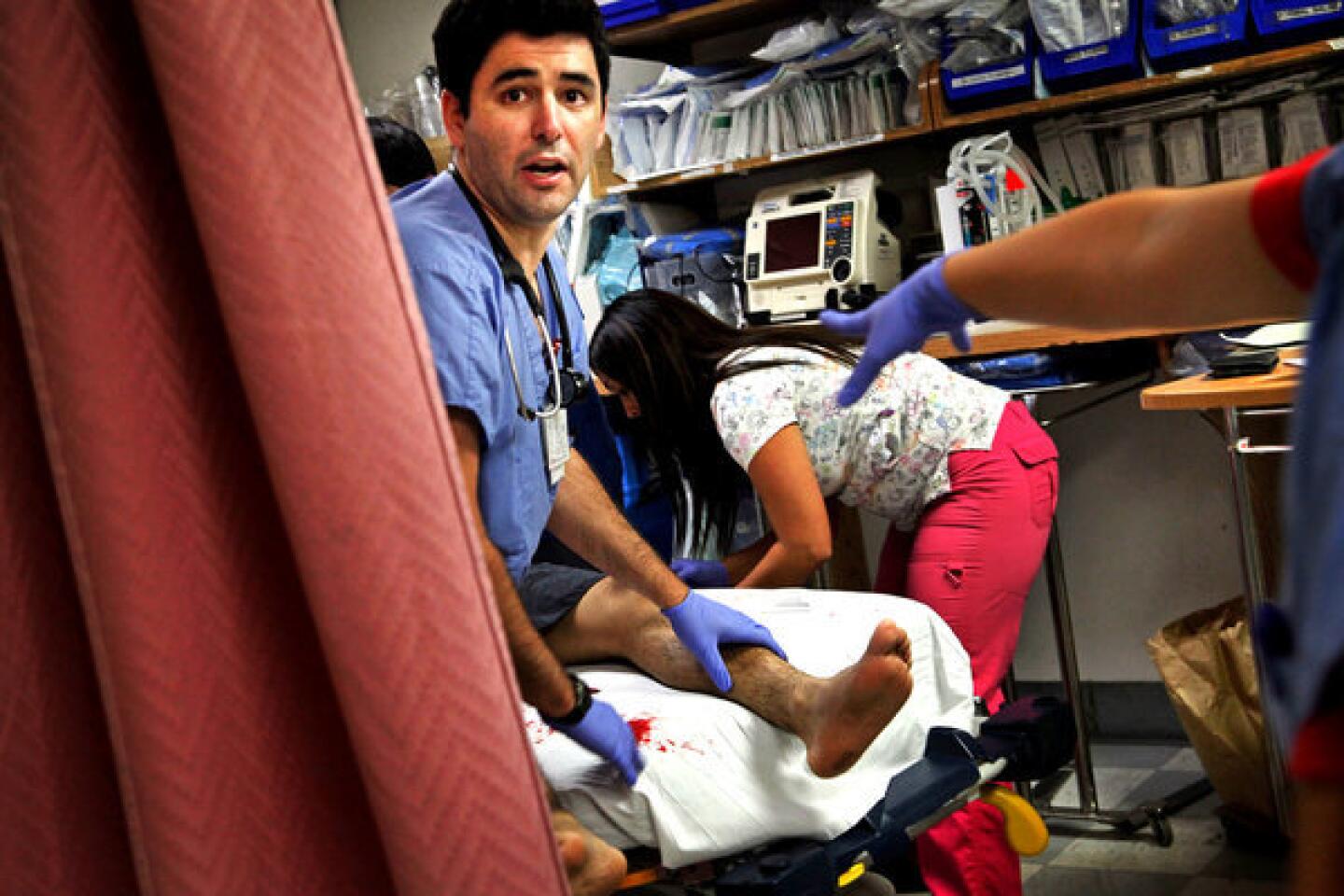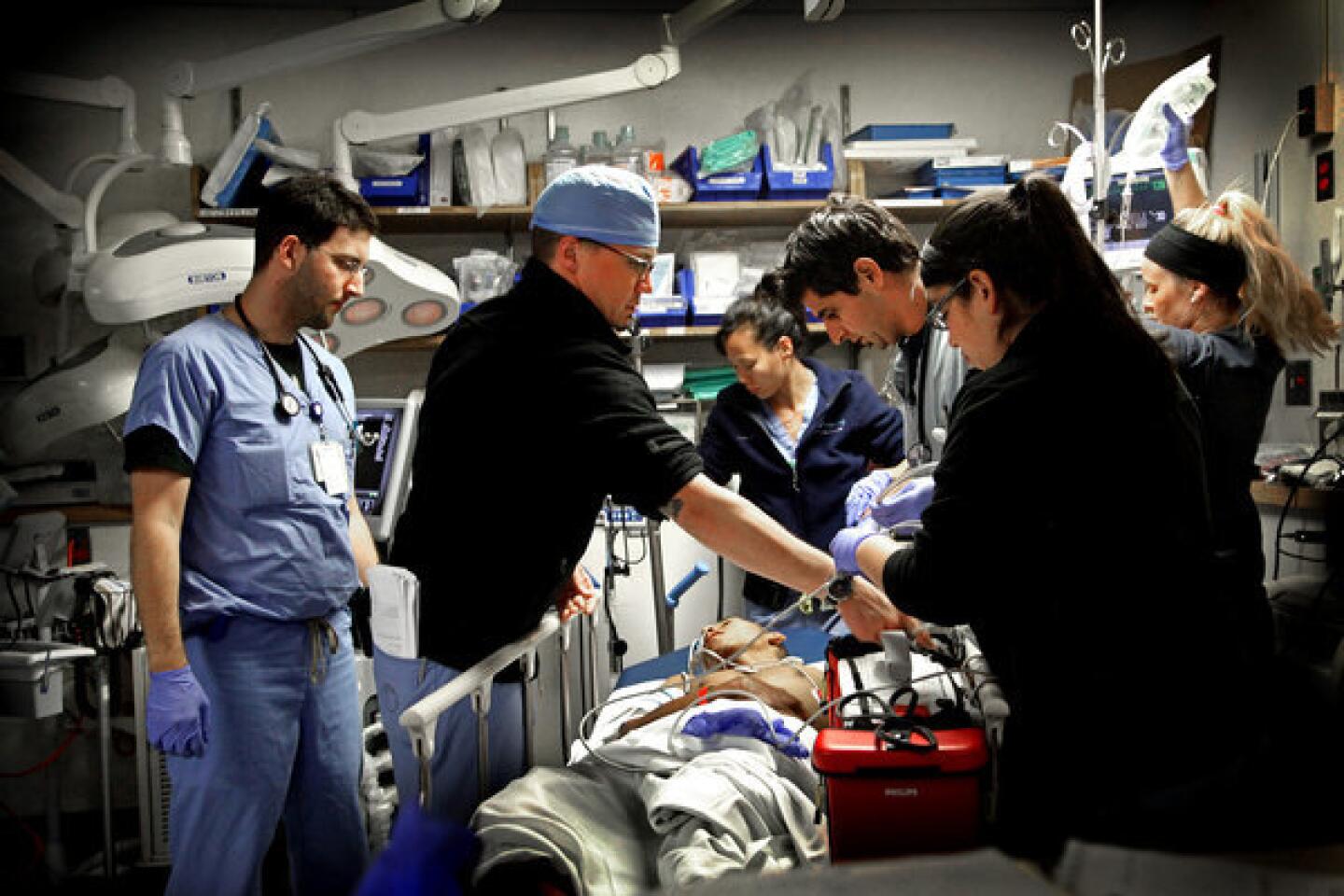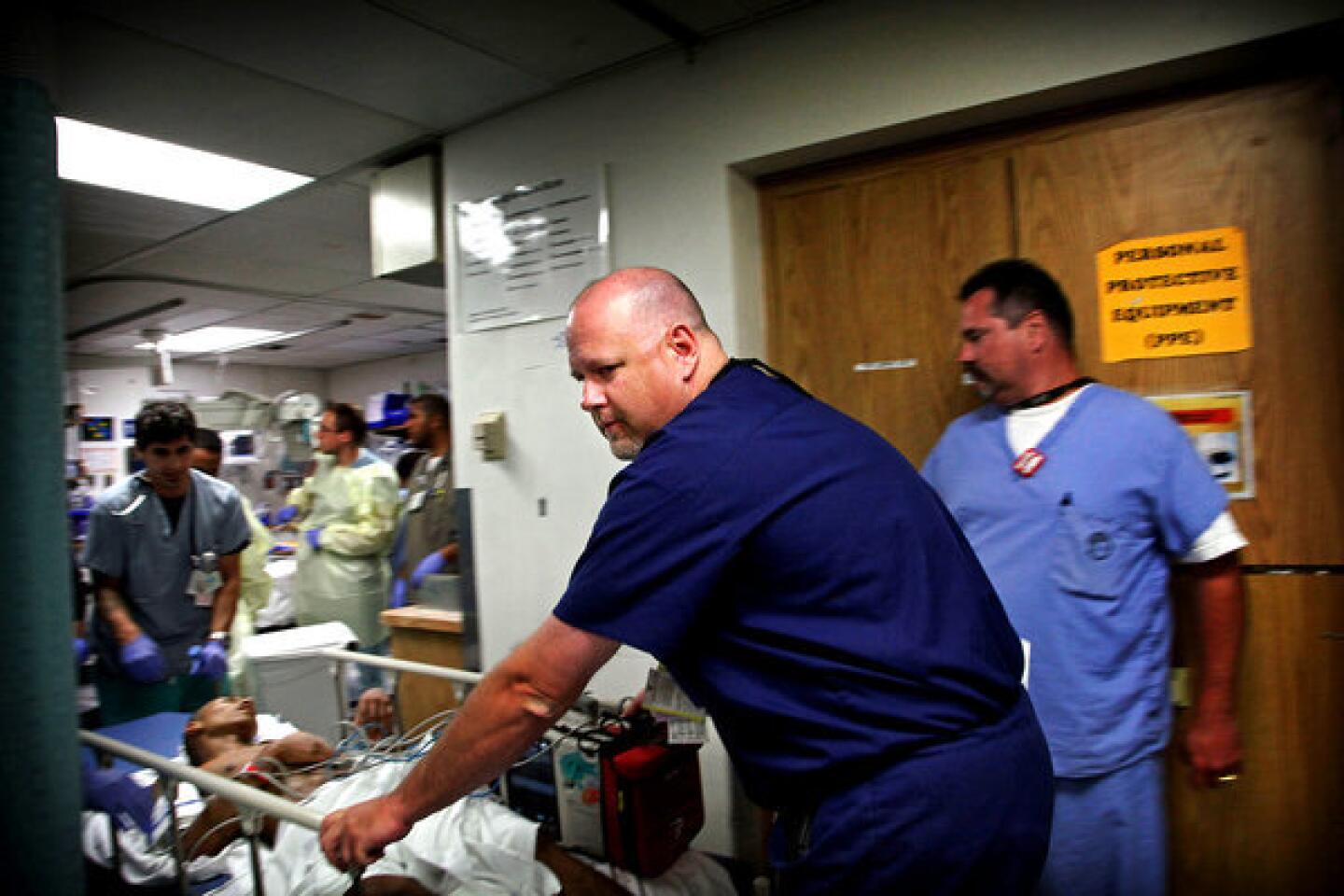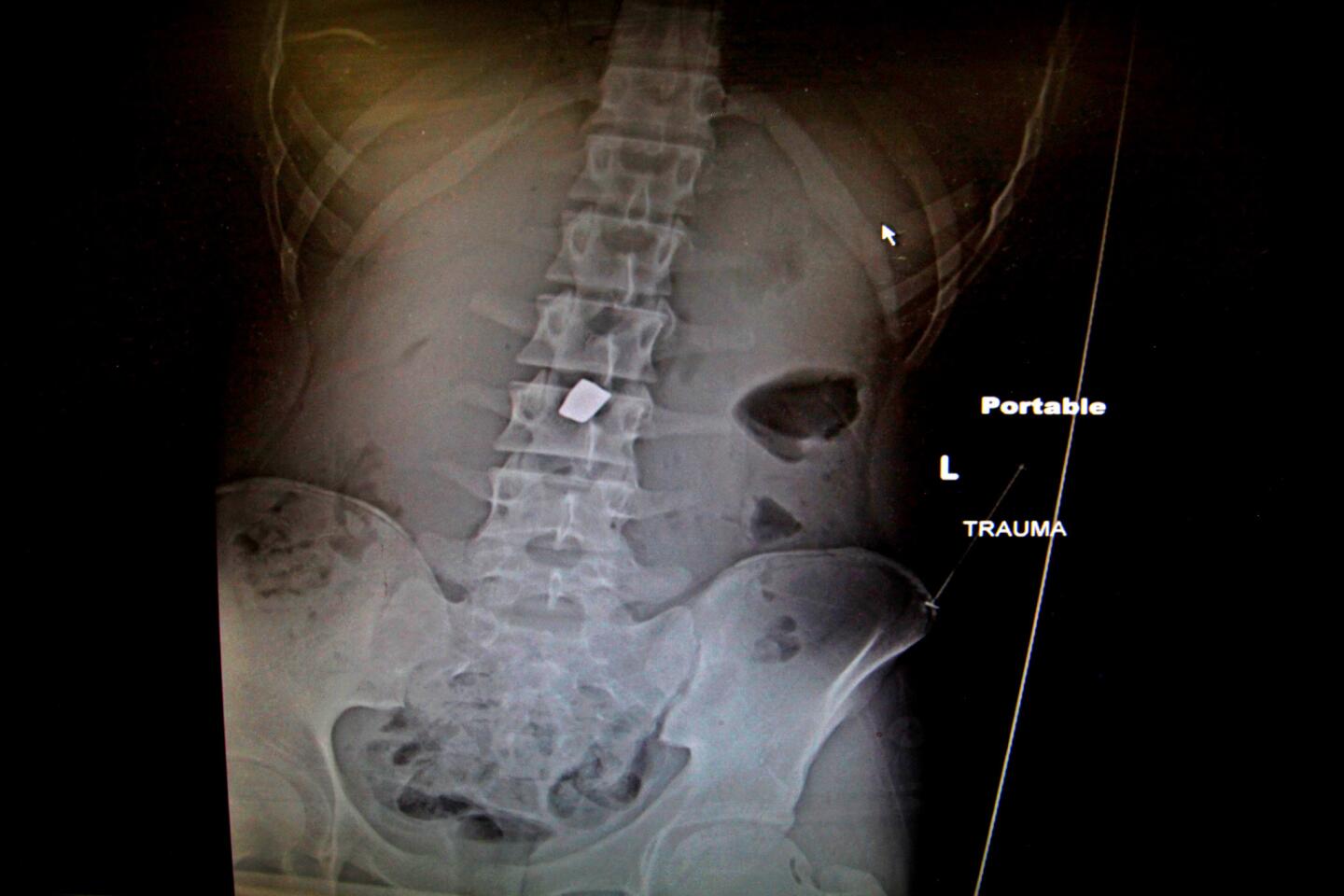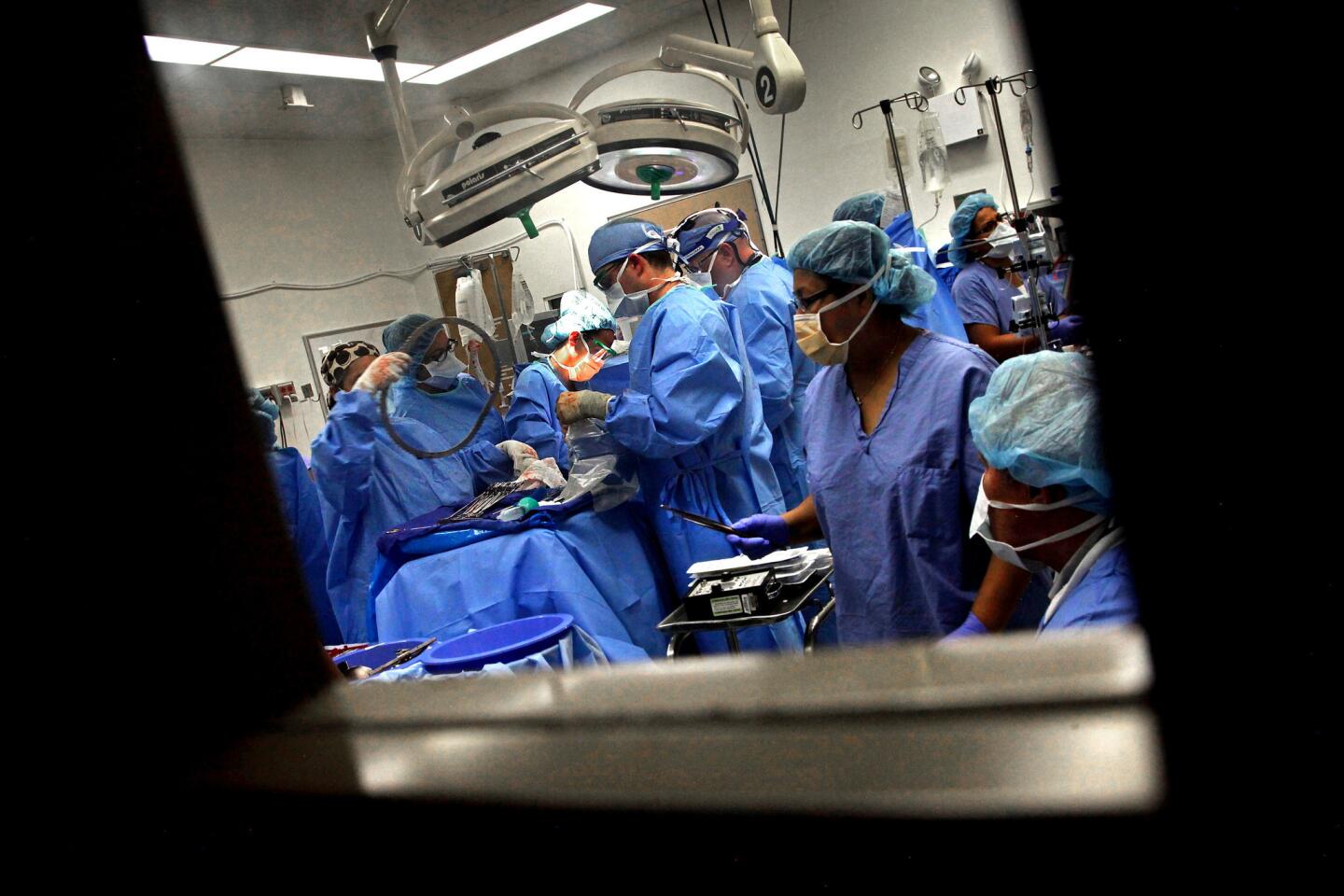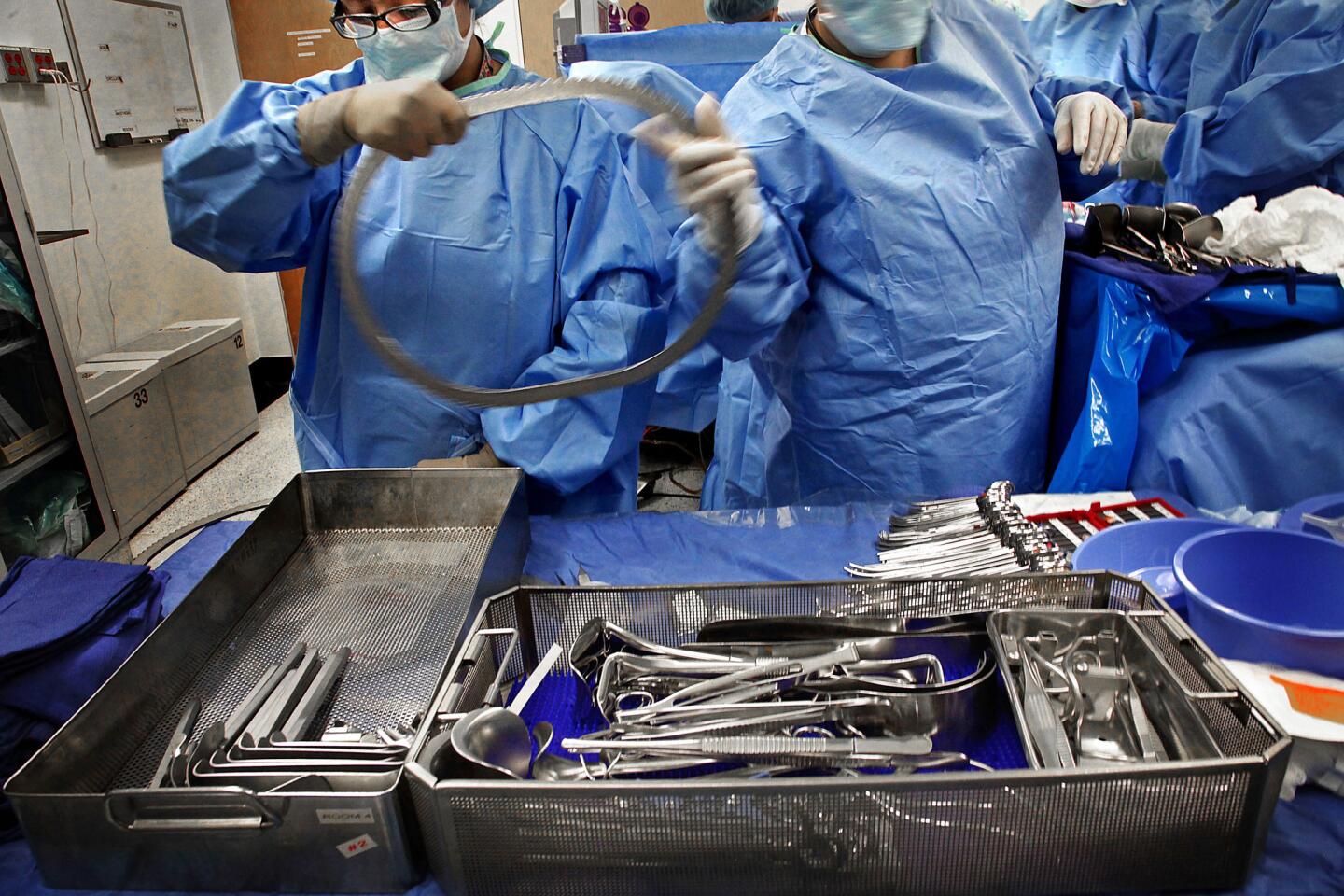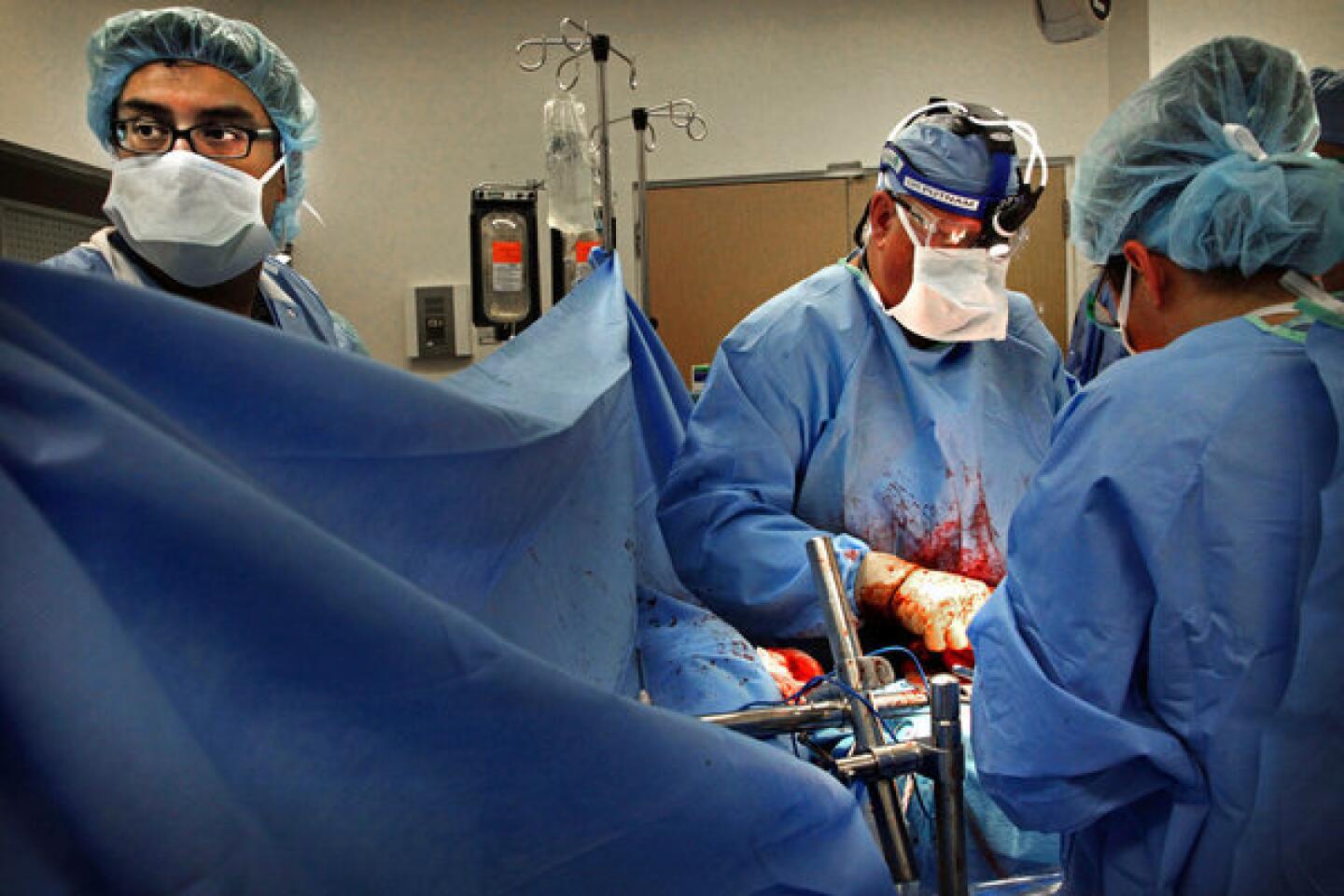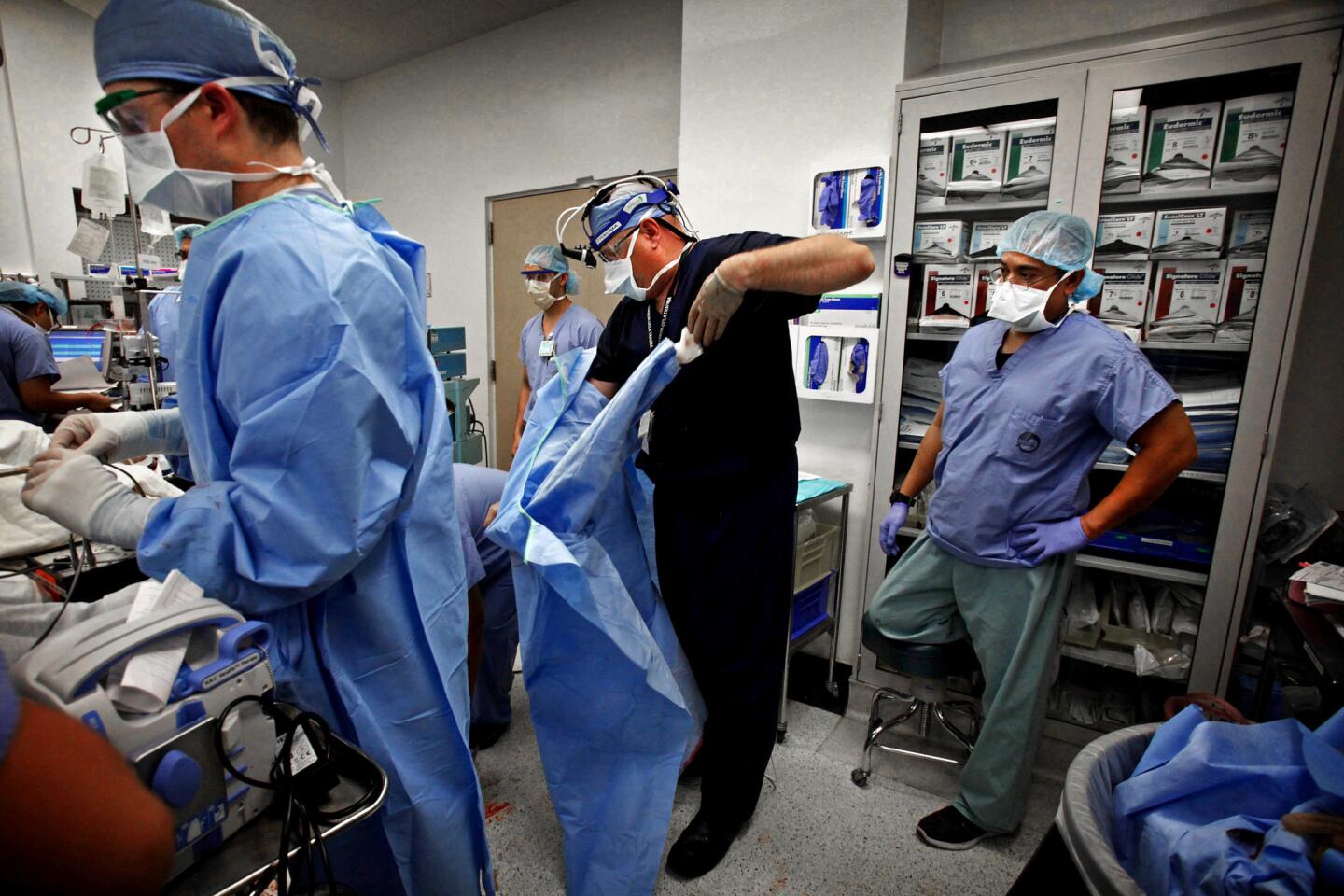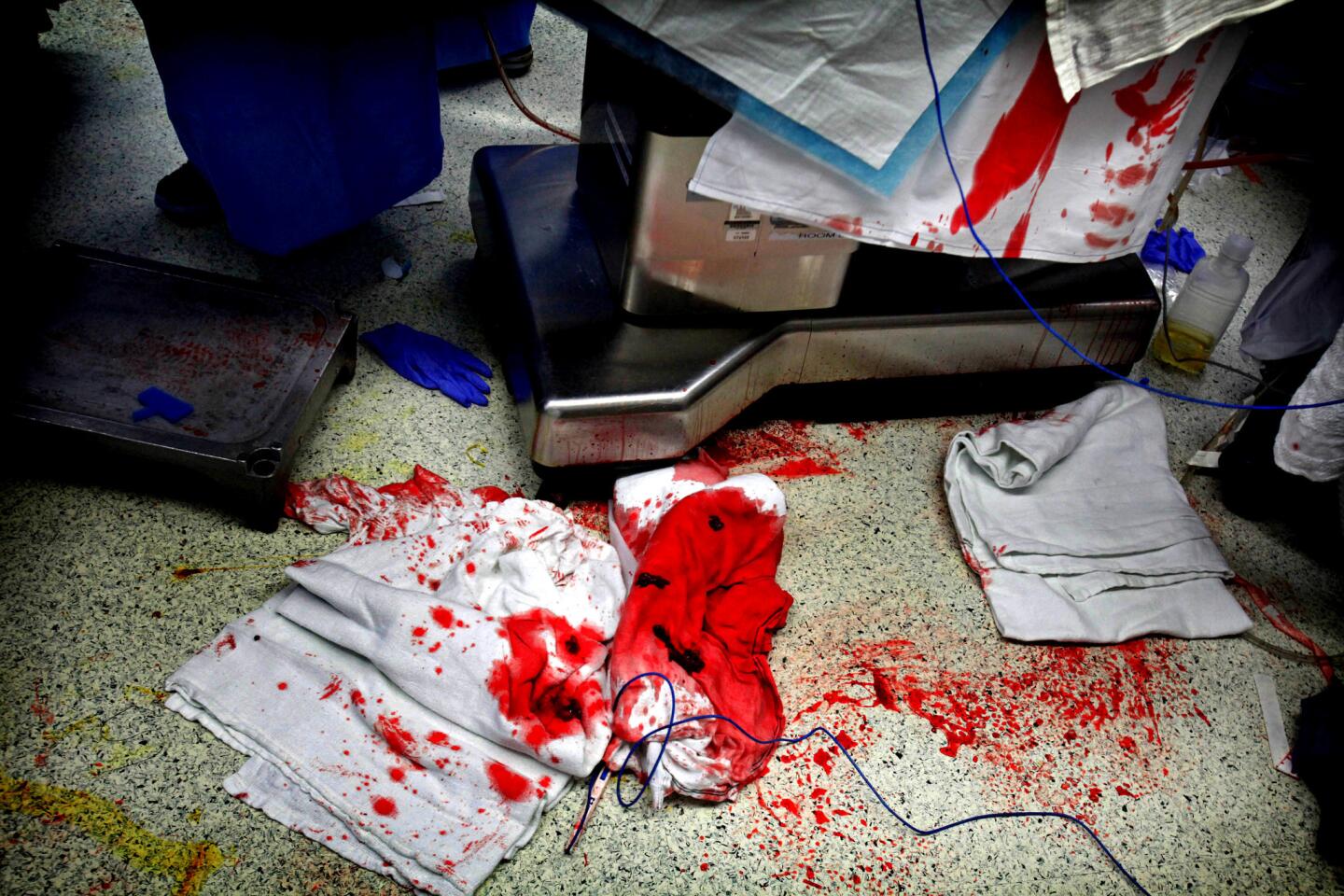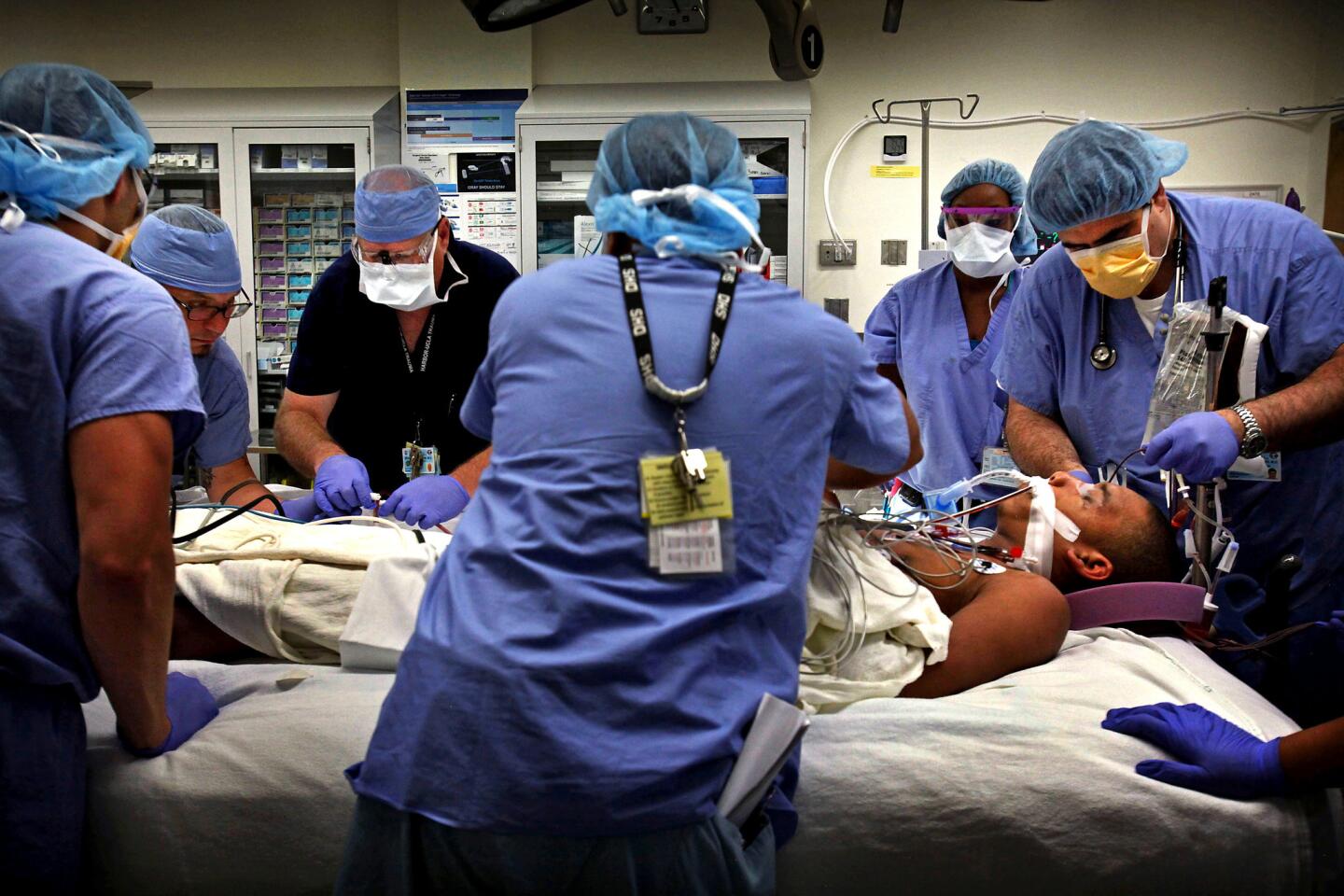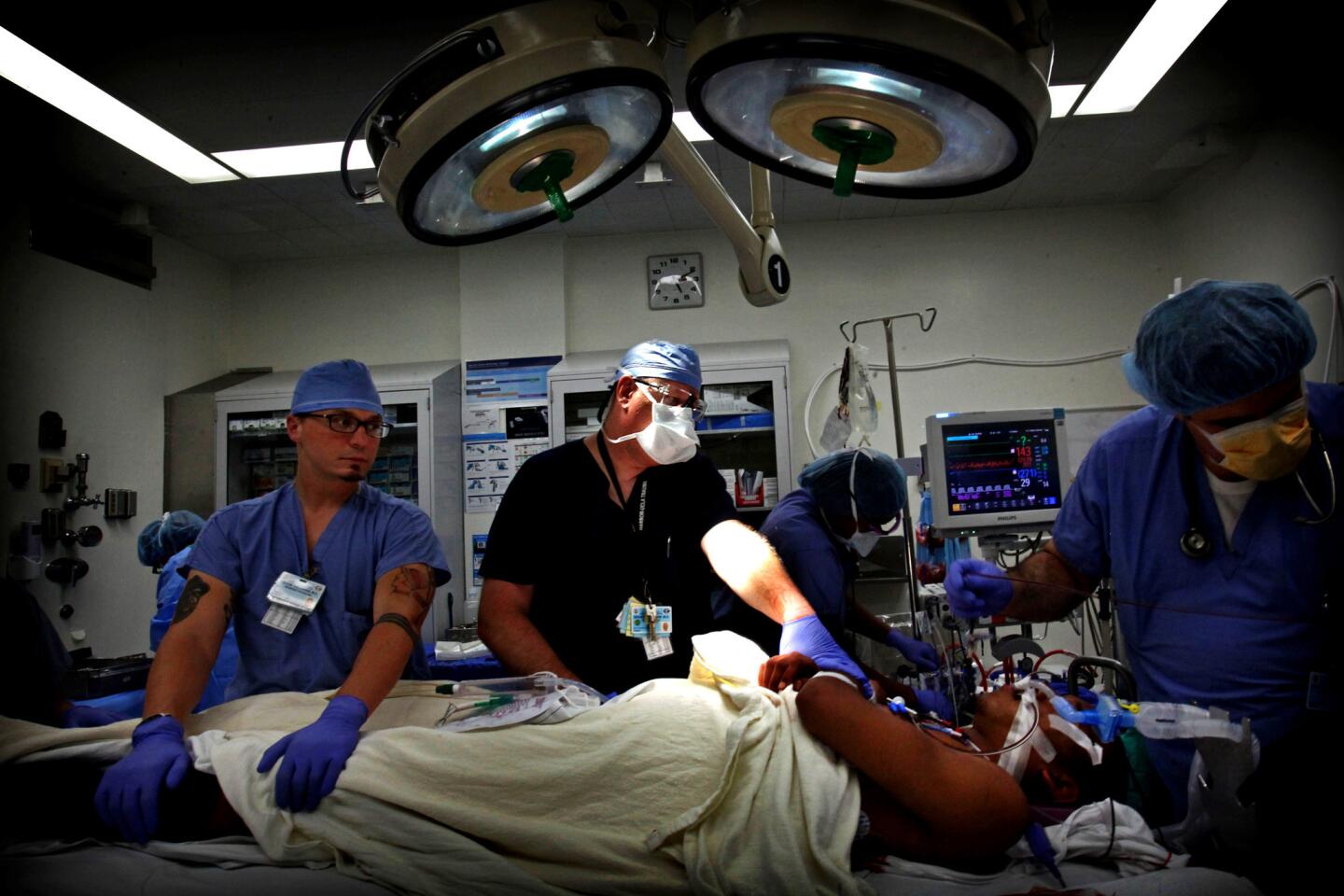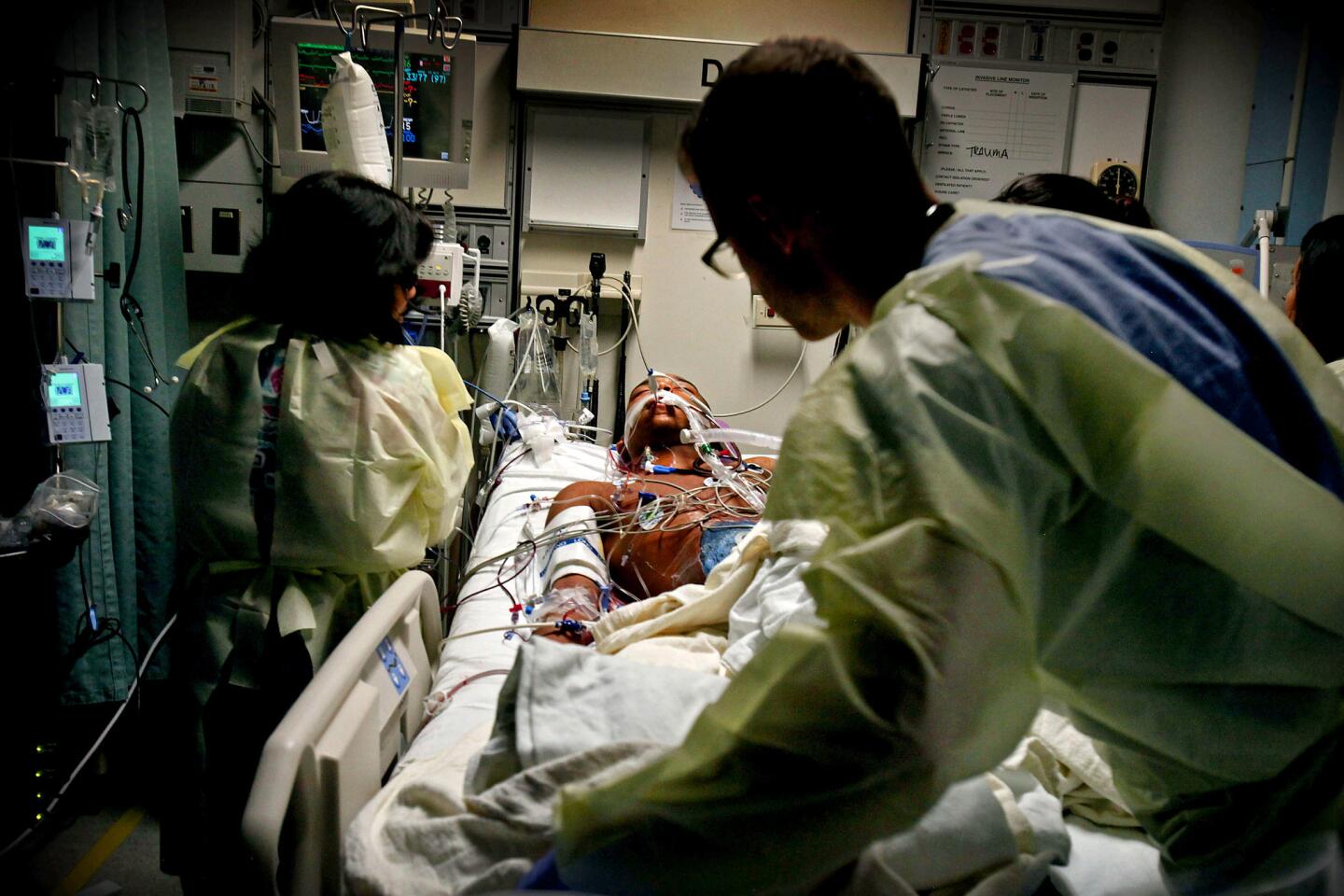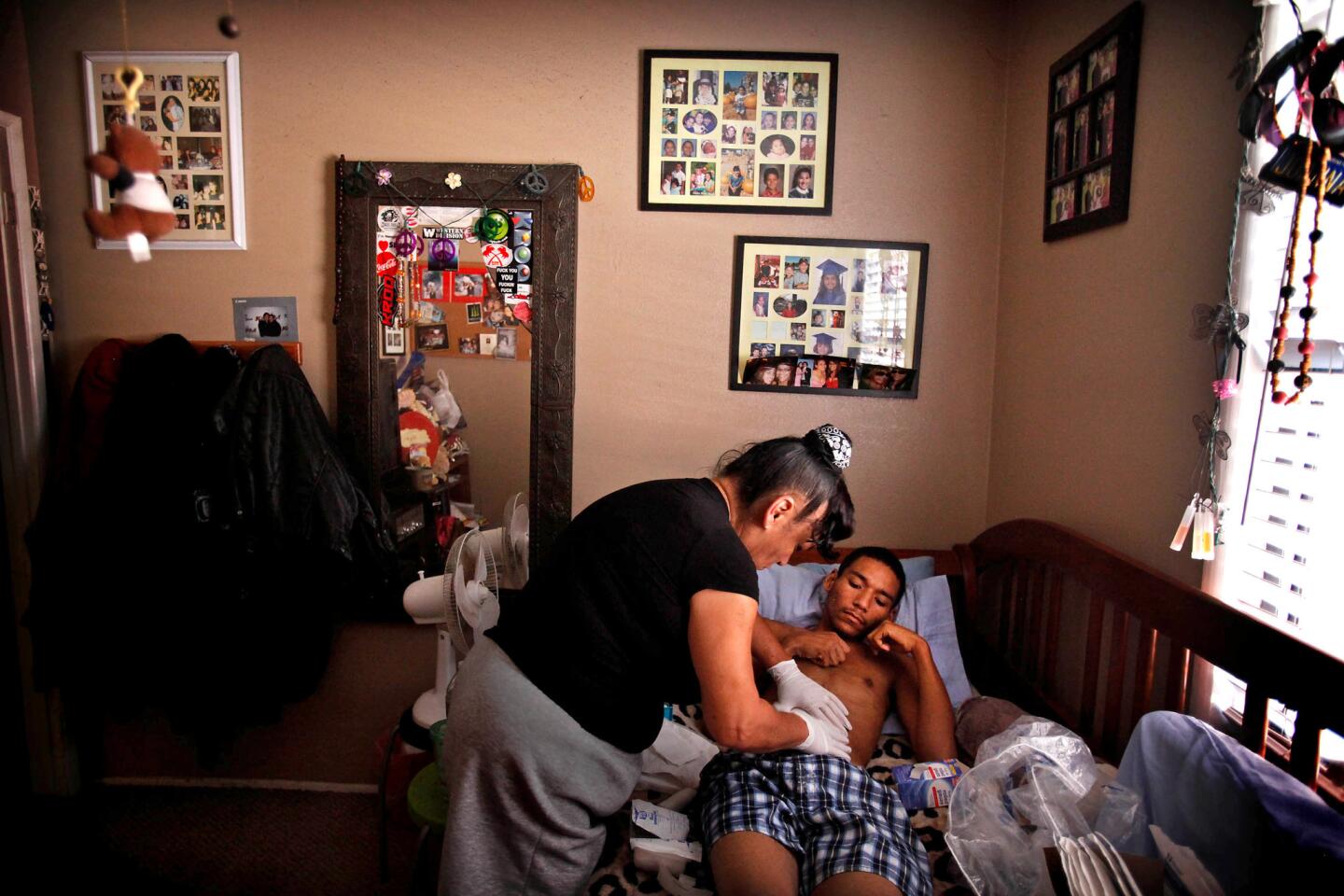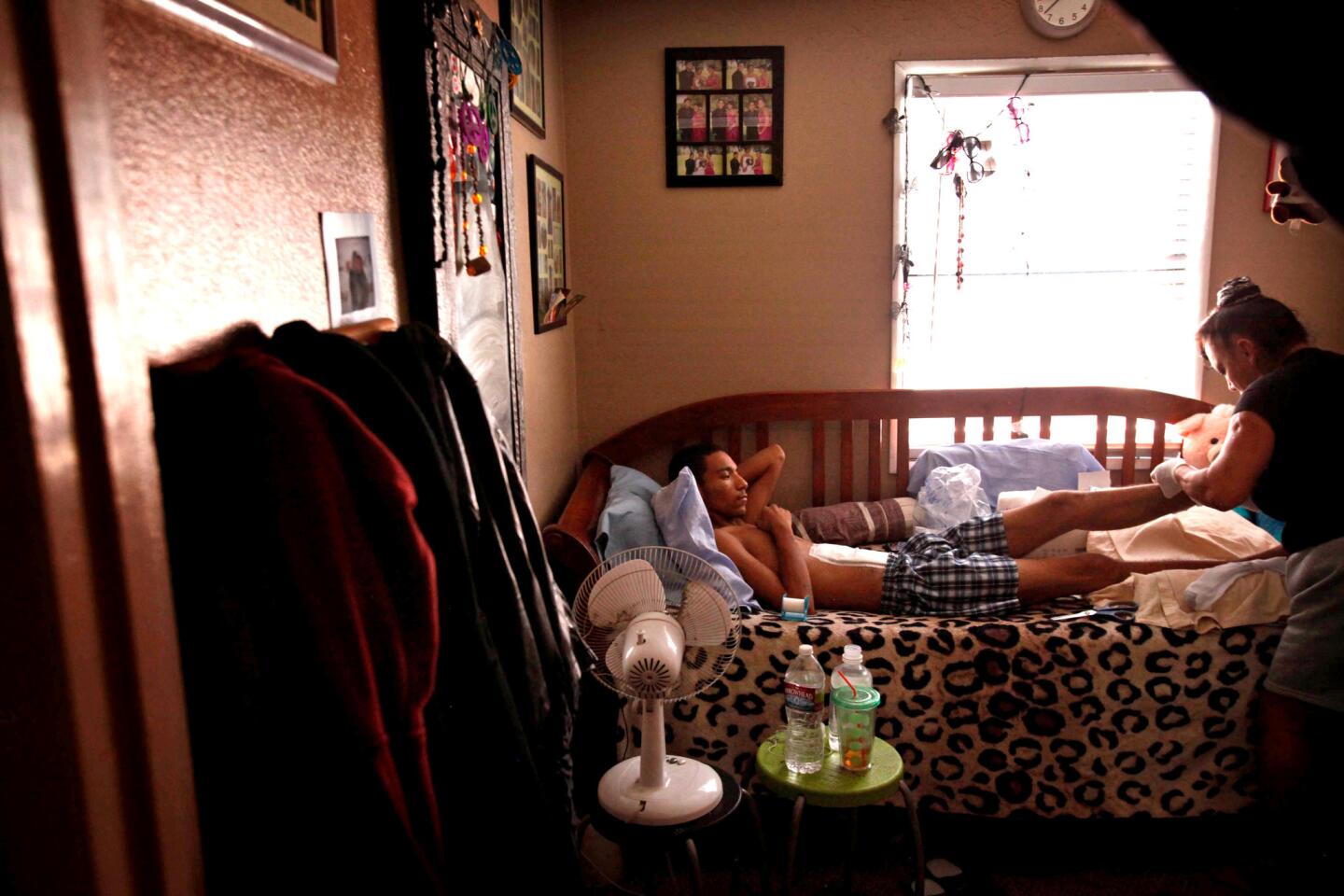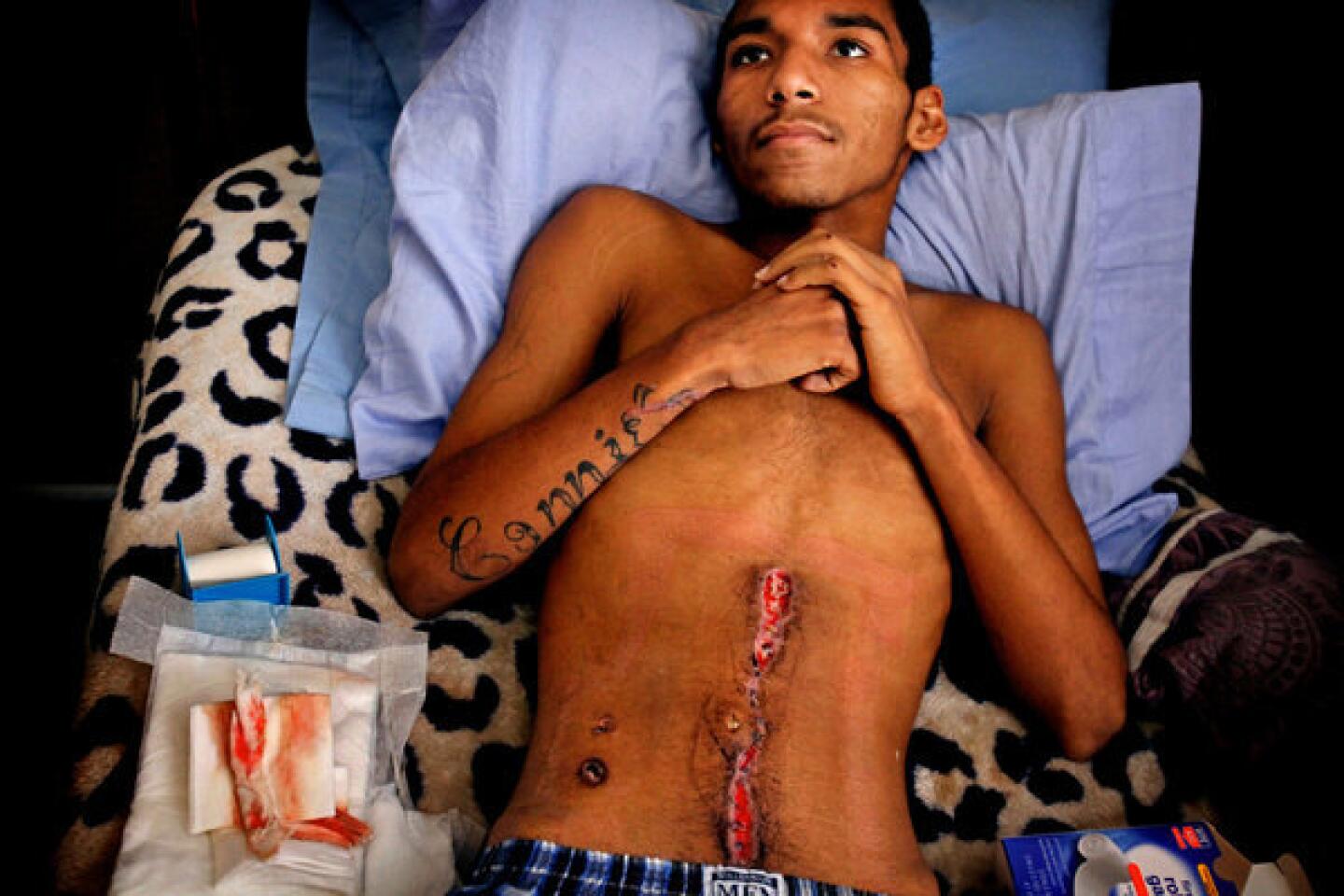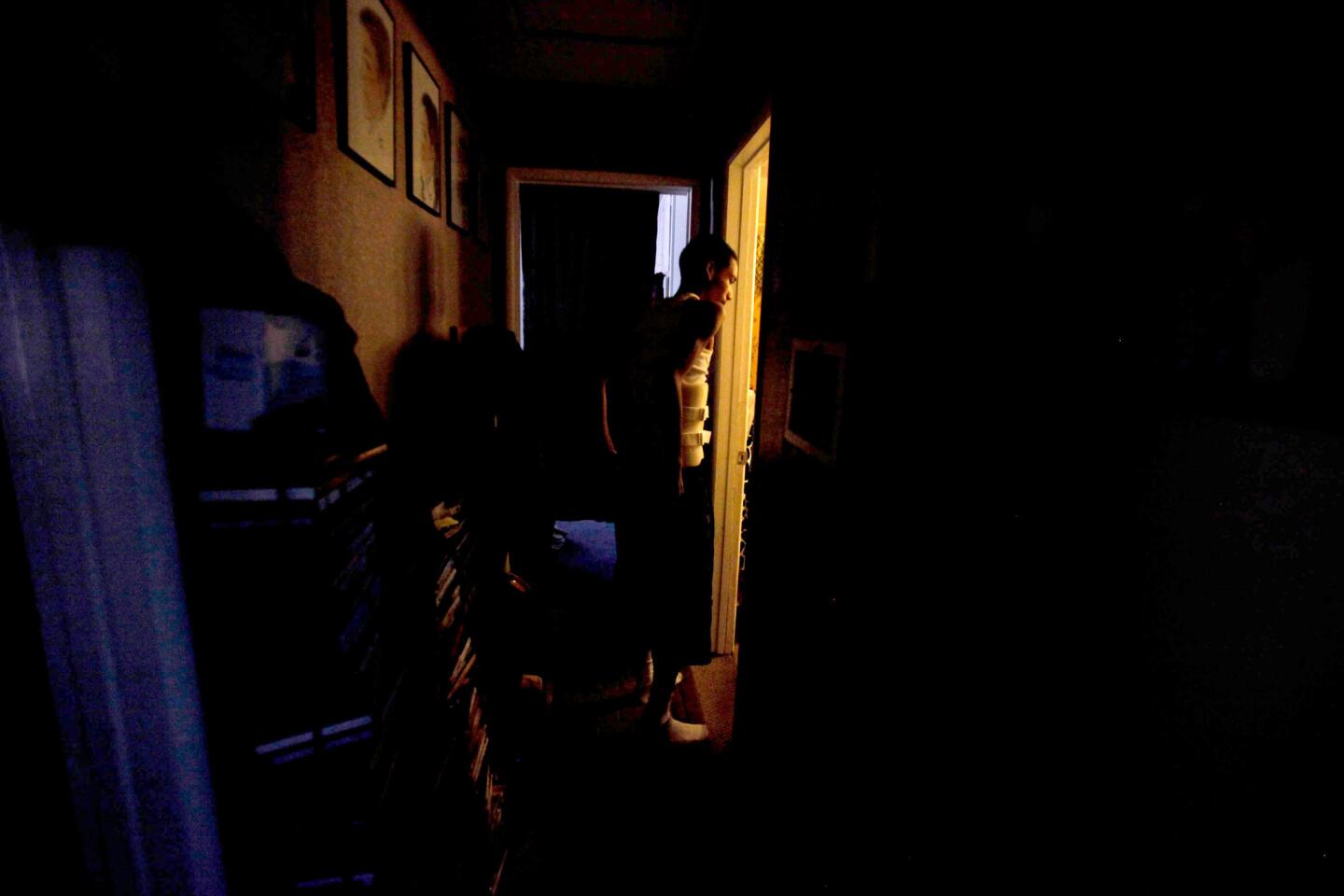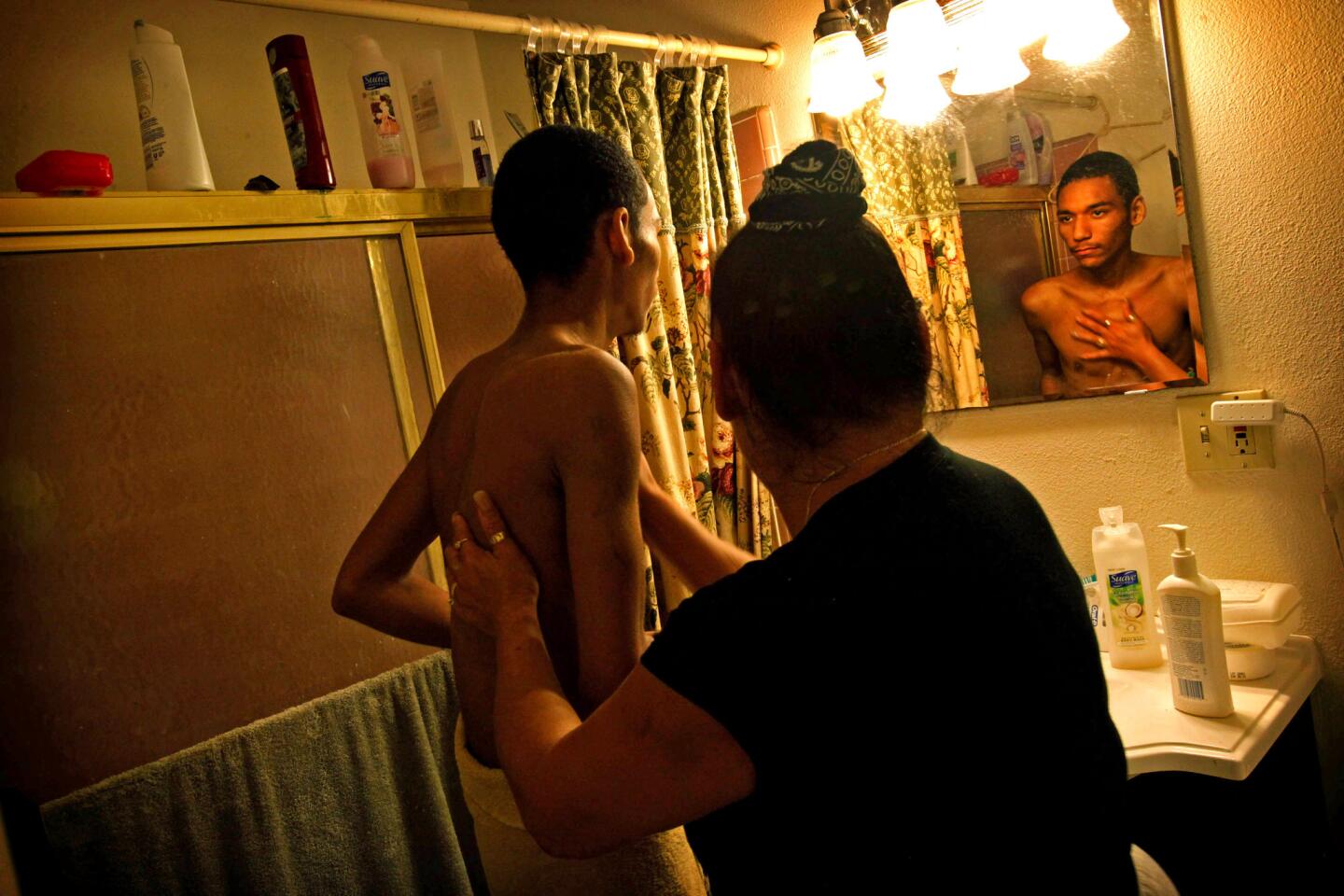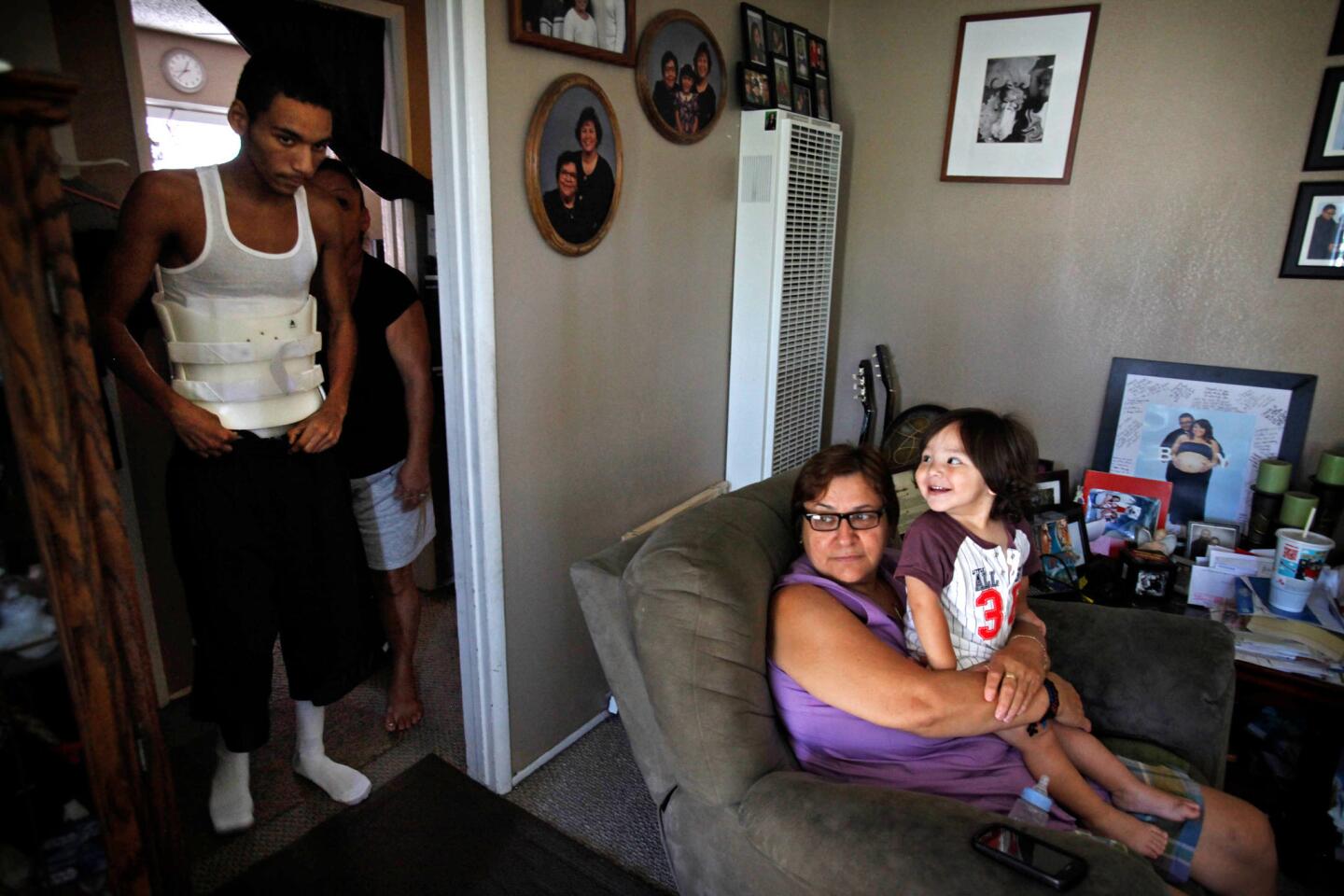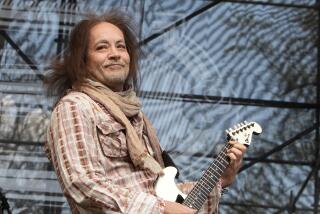Emergency room doctors speak out on Southern California gun violence
After he heard the gunshot, Lee Benton sat down, lifted his shirt and saw the hole in his body.
The 16-year-old, who had been at a party in Wilmington, was going to spend the night with a friend. Walking home, the two had decided it would be safer if they took an alley rather than Wilmington Boulevard. It was a little past midnight.
There was no confrontation, Lee says. All he could remember was hearing a gun and feeling a burning pain in his stomach.
His friend, who was hit in the shoulder, was able to call a girlfriend, who met the boys and drove them to the hospital. Lee recalls feeling dizzy and scared.
Dr. Brant Putnam of Harbor-UCLA Medical Center treated Lee. The bullet severed the boy’s inferior vena cava, an injury with a 50-50 survival rate. Putnam’s efforts to save Lee’s life were featured in The Times over the weekend.
Putnam estimates he has treated about 5,000 GSWs – gunshot wounds – and consulted on nearly 2,000 more over the last 20 years. Harbor-UCLA annually treats on average two victims a day.
Firearm-related assaults in California have gone down 74% from 1992 to 2012, according to a recent report by the Office of Statewide Health Planning and Development, but no matter the trend, Putnam is baffled by the conversation in this country over the 2nd Amendment.
“Guns change lives forever,” he says, “and the debate about gun control is not in step with life on the streets. It’s a different world out there than in the congressional hearings or warm conference room.”
Grace-Ann Dinkins, a surgeon with the MemorialCare Health System, wishes legislators would consult trauma surgeons before casting votes about gun control.
“There are too many guns in our society,” she says, “and they often land in the wrong hands, like a school kid.”
Michael Lekawa, the trauma director at the UC Irvine Medical Center since 1997, describes his job as both fatiguing and frustrating.
Injuries from guns are, from his perspective, unnecessary.
“We don’t do enough to make guns safe,” says Lekawa. “If people saw what a GSW does, they would limit the availability of guns. Look at Space Mountain: When they find a loose bolt, they shut it down, and yet we allow guns into homes where there are children.”
When Lee’s mother, Connie Greene, heard that her son was going to survive the shooting, she remembered two family members whom doctors weren’t able to save.
Jacob Benavidez, a nephew, was 15 when he was shot several times on a street in Long Beach in 2009. Another nephew, Larry Christopher Greene, 23, was killed by gun fire almost a year earlier.
During the first two days of Lee’s recovery, Greene sat beside her son in the ICU. At the time, she didn’t know whether he would live, and she credits her faith for sustaining her.
“I want this story to get out,” she said. “The impact and end results on families and youth that come from these random acts of crime and violence are immeasurable.”
ALSO:
Modesto man arrested in connection with parents’ deaths
Huntington Beach’s final bill surf event disturbance: $30,800
Hannah Anderson friend: Teen is ‘acting strong for everyone’
Twitter: @tcurwen | Facebook
More to Read
Sign up for Essential California
The most important California stories and recommendations in your inbox every morning.
You may occasionally receive promotional content from the Los Angeles Times.
